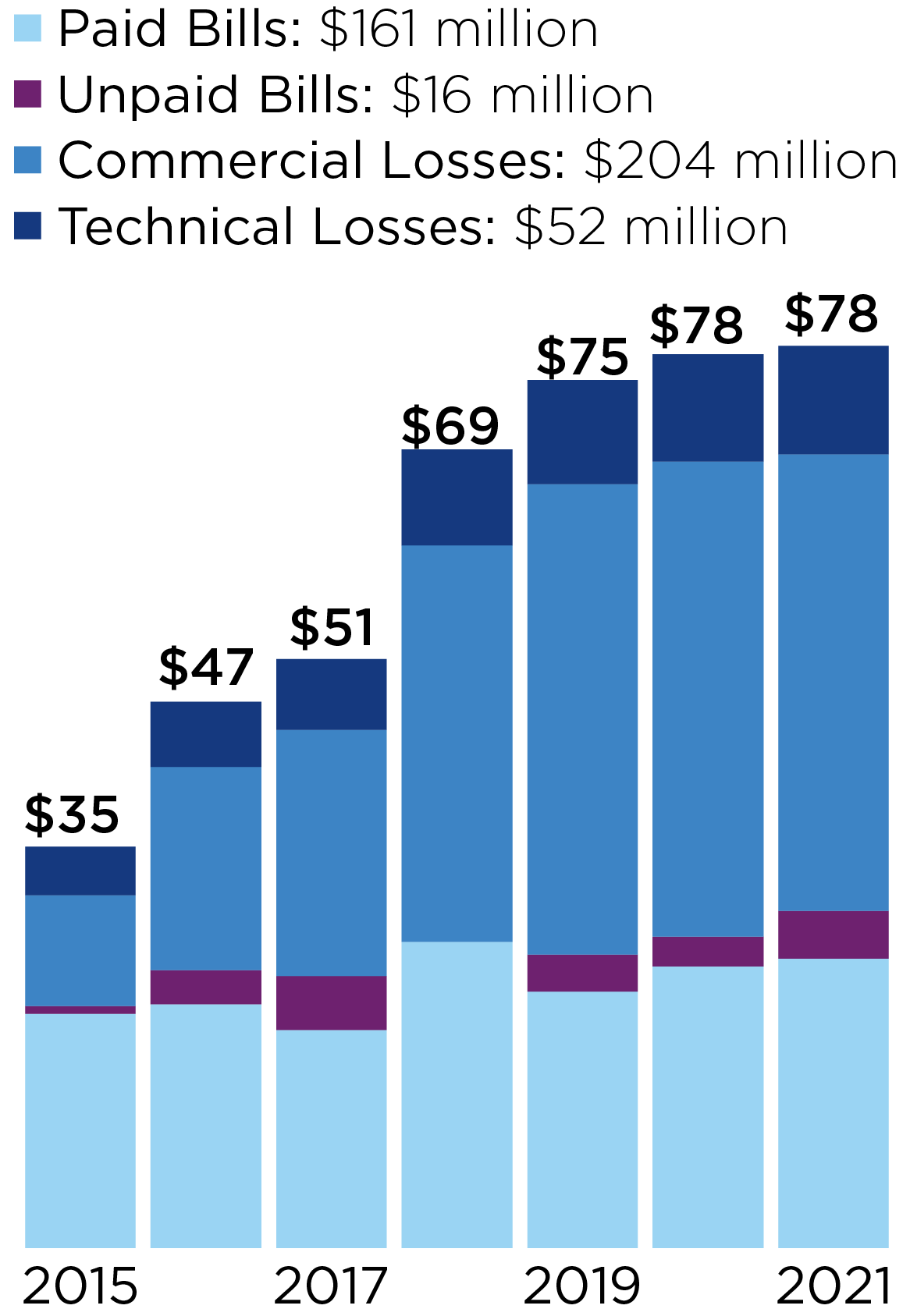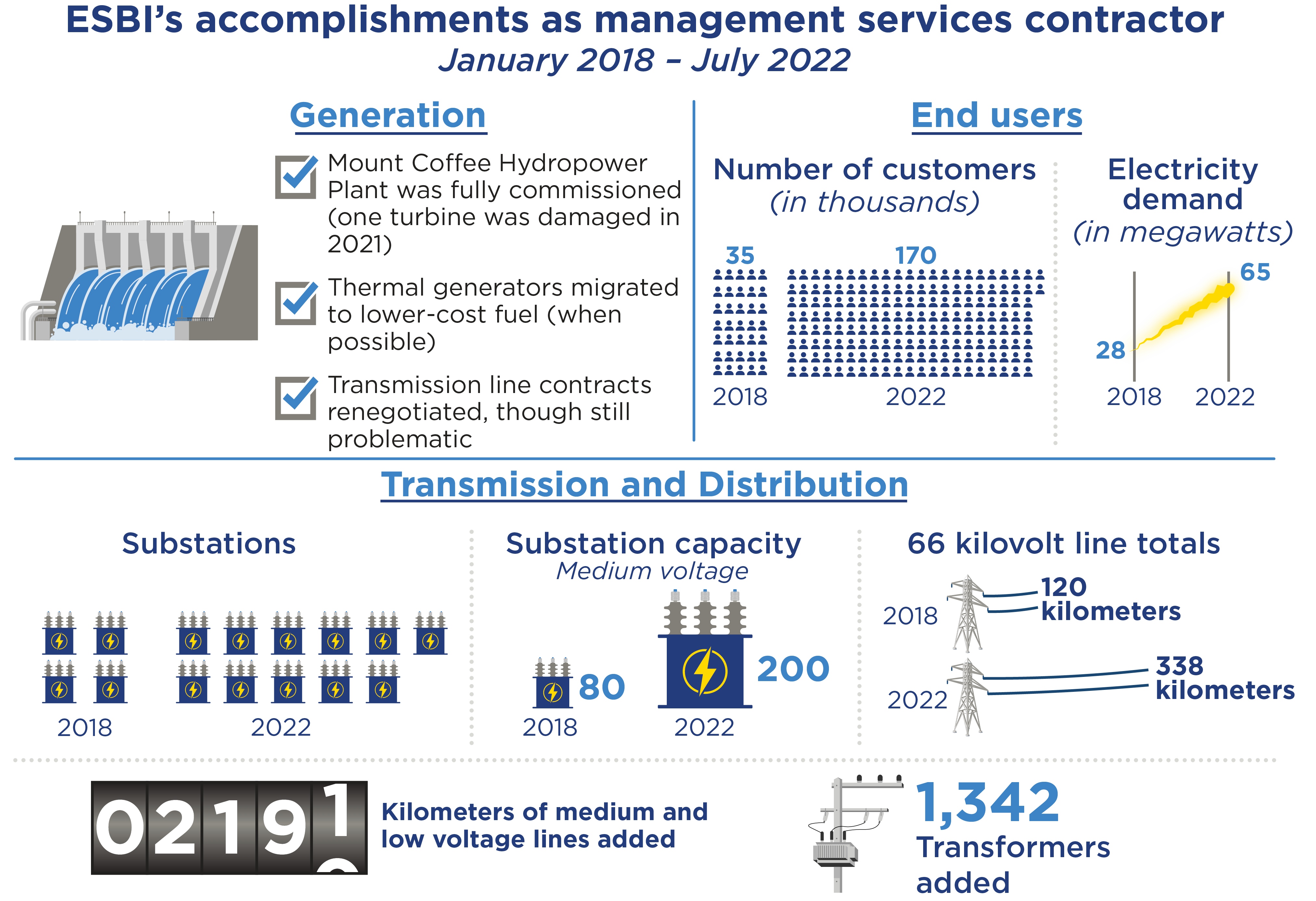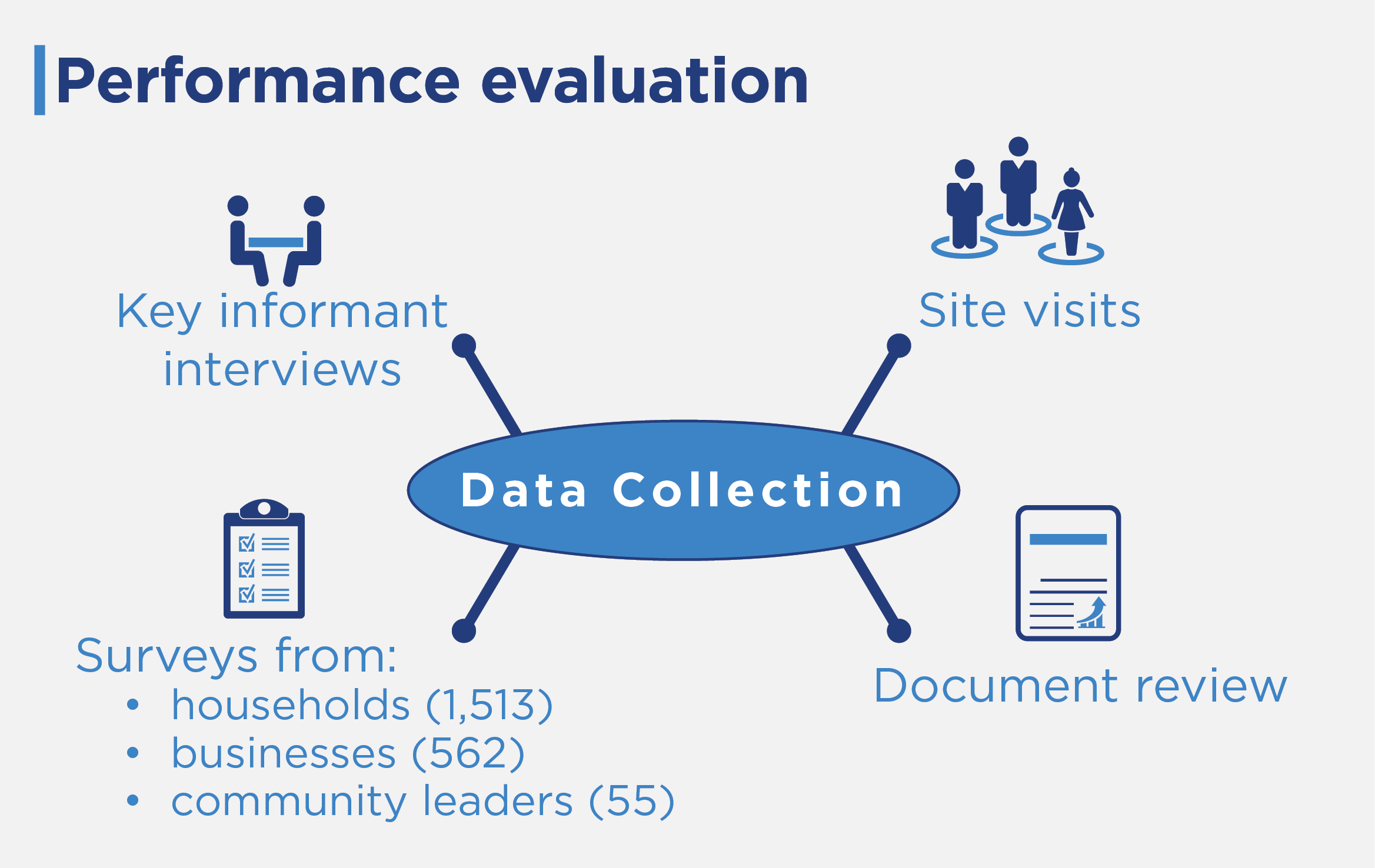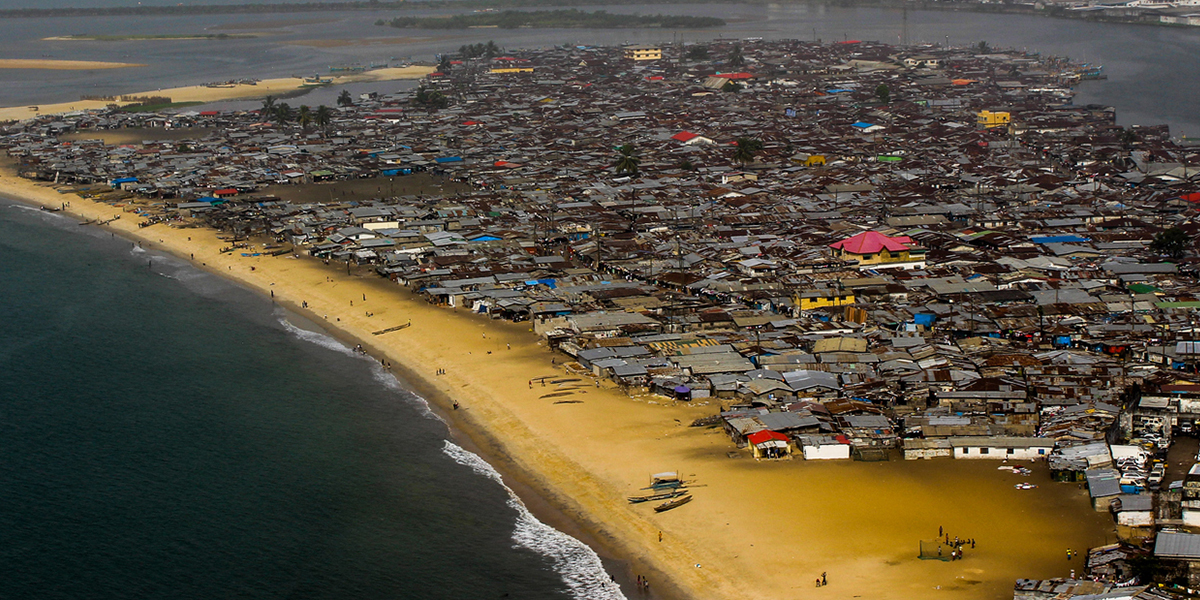Program Overview
MCC’s $238 million Liberia Compact (2016-2021) aimed to encourage economic growth and reduce poverty by providing access to more reliable and affordable electricity. The compact funded the $207 million Energy Sector Project, which included rehabilitating the Mount Coffee Hydropower Plant to generate 75 megawatts of low-cost renewable energy. Activities also included supporting the management services contract to strengthen the Liberia Electricity Corporation’s management and operations capacity, and establishing an independent regulator to accelerate private sector investment in the energy sector.
Key Findings
Power Plant Rehabilitation and Electricity Access
- Customer connections grew quickly as the Mount Coffee Hydropower Plant and donor-funded distribution projects were completed.
- Plant sustainability is jeopardized by inadequate funding for operations and maintenance.
Management Services Contract and Utility Capacity
- Despite challenges, the management services contract, which the firm hired to support the utility, increased connections, reduced outages, and improved management practices.
- Power theft remains high and threatens sustainability. The utility requires investments in meters and the low voltage network to meet customer demand.
Energy Sector Regulation
- The Liberia Electricity Regulatory Commission has developed a regulatory framework for electricity generation, transmission, distribution, and sales.
- The regulator approved a tariff that is too low to cover costs, private operators are unlicensed, and its independence is threatened without adequate income.
Evaluation Questions
The final performance evaluation was designed to answer whether the project:
- 1
Was implemented as planned? - 2
Contributed to improvements in electricity regulation, policy formulation, and monitoring? - 3
Affected electricity generation, transmission, distribution, and reliability? - 4
Aided in the sustainability of the Liberia Electricity Corporation as a utility? - 5
Affected the number of users connecting to the grid and the demand for electricity?
Detailed Findings
These findings build upon the interim evaluation report results published in 2020.
Power Plant Rehabilitation and Electricity Access
The Mount Coffee Hydropower Plant was rehabilitated, providing access to low-cost hydropower during the rainy season (from May to October) at a cost of $0.14 per kilowatt hour (kWh) compared to $0.33 per kWh for thermal generation.
In January 2021, one of the units of the power plant failed, and the unit remained offline at the time of data collection. Design and construction choices may have led to the catastrophic failure. Repair costs were estimated at $4-$9 million, and lost revenue may exceed $5 million to date. Additional units may require a similar repair.
The Liberia Electricity Corporation, the power utility, estimated connections grew from 35,000 customers in 2018 to 157,000 by March 2022. While overall demand has increased, average customer consumption has declined over time. Most households report their main use of electricity is for lighting. More than 60 percent of leaders in communities surveyed between late 2020 and late 2021 reported that health facilities, pharmacies, and schools have Liberia Electricity Corporation electricity, compared to 15 percent in 2019. However, end users report that more hours of reliable power are needed to improve business productivity and operations.
Management Services Contract and Utility Capacity

Paid and unpaid bills as well as technical and commercial losses, by year and totals by category, millions of dollars
Electricity Supply Board International (ESBI) became the management services contractor in 2018. At the time, the Liberia Electricity Corporation operated at a loss and debt exceeded $21 million. The utility also had lawsuits for unpaid fuel, loans for inoperable equipment, contracts due to cronyism, burnt records, no asset listing, no customer database and a low voltage network requiring extensive repair. With widespread power sector corruption, the utility’s financial crisis, and increasing responsibilities with new donor-funded assets, the contract lacked operating investments, capital investments, and Board of Directors support.
Still, ESBI succeeded in extending the transmission and distribution network. ESBI reduced outages and increased overall demand and the number of actively paying customers. Power theft and political interference remain the utility’s greatest threats to solvency and sustainability. The Liberia Electricity Corporation has lost $271.9 million from 2015 to 2021, including $15.9 million in unpaid bills, $204 million in commercial losses, and $51.9 million in technical losses. More generated power has meant greater losses.
 Energy Sector Regulation
Energy Sector Regulation
The Liberia Electricity Regulatory Commission (LERC) was established in 2019 to develop a modern regulatory framework for electricity generation, transmission, distribution, and sales. LERC quickly developed regulatory governance and substantive laws, policies, and regulations aligned with international standards; however, improved sector outcomes will take years to realize. LERC’s financial model relies on revenue from fees and levies on sales, which threatens long-term independence. For example, LERC conducted a census listing 345 private sector electricity operators, yet it lacks resources to license, monitor, and enforce laws, so LERC cannot collect fees. In 2022, LERC approved an electricity tariff reduction that does not cover the cost to produce electricity. This reduction further threatens the Liberia Electricity Corporation’s financial solvency. Hydropower costs the Liberia Electricity Corporation $0.14 per kWh to produce. Thermal generation and power from other countries cost the utility $0.33 and $0.24 per kWh, respectively. Meanwhile, 97 percent of customers pay $0.15 per kWh. The mix of power supplied determines the utility’s revenue; however, the Mount Coffee Hydropower Plant unit outage and less rainfall have made the Liberia Electricity Corporation increasingly reliant on power from neighboring countries. The tariff and persisting power theft worsen the utility’s financial problems.
Economic Rate of Return
MCC considers a 10 percent economic rate of return (ERR) as the threshold to proceed with investment.
- 10.7%
Original ERR - 8.4%
Updated ERR (as relevant) - 8%
Evaluation-based ERR
MCC Learning
Sustainability for a power utility requires a stable income stream.
Projects should continue to find new ways to plan for maintenance after the project ends.
Evaluation Methods

This performance evaluation included an implementation analysis, longitudinal analysis of administrative data, a quantitative pre-post analysis of survey data in two different locations (connected and unconnected households), qualitative analysis using document review, site visits, interviews, and recalculation of the ERR.
The final round of data collection occurred between November 2020 and December 2021, 11 months after the compact end date, resulting in an exposure period of between 23 and 36 months. This timing means that data was collected approximately three years after the completion of the Mount Coffee Hydropower Plant rehabilitation, three years after the management services contract was installed at the Liberia Electricity Corporation, about two years after the LERC began functioning, and one to two years after the grid was expanded into some communities. The evaluation collected data from households (1,513), businesses (562), and community leaders (55).
2023-002-2856


